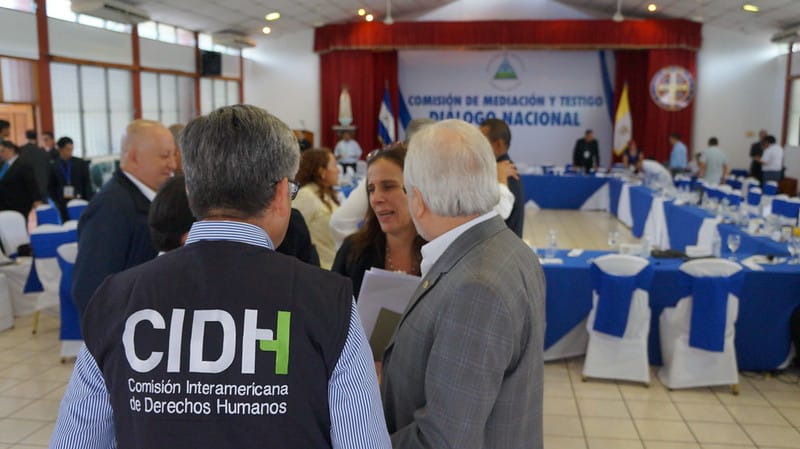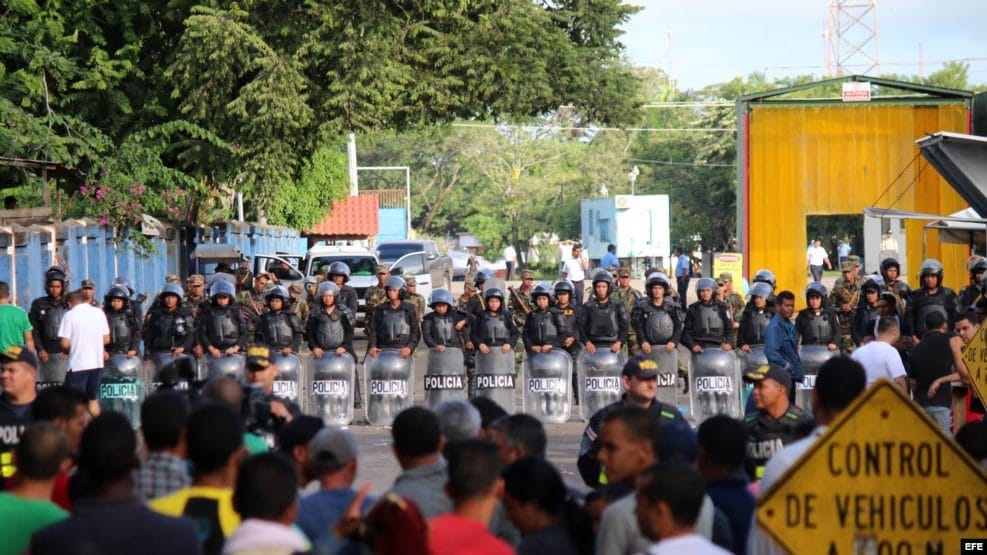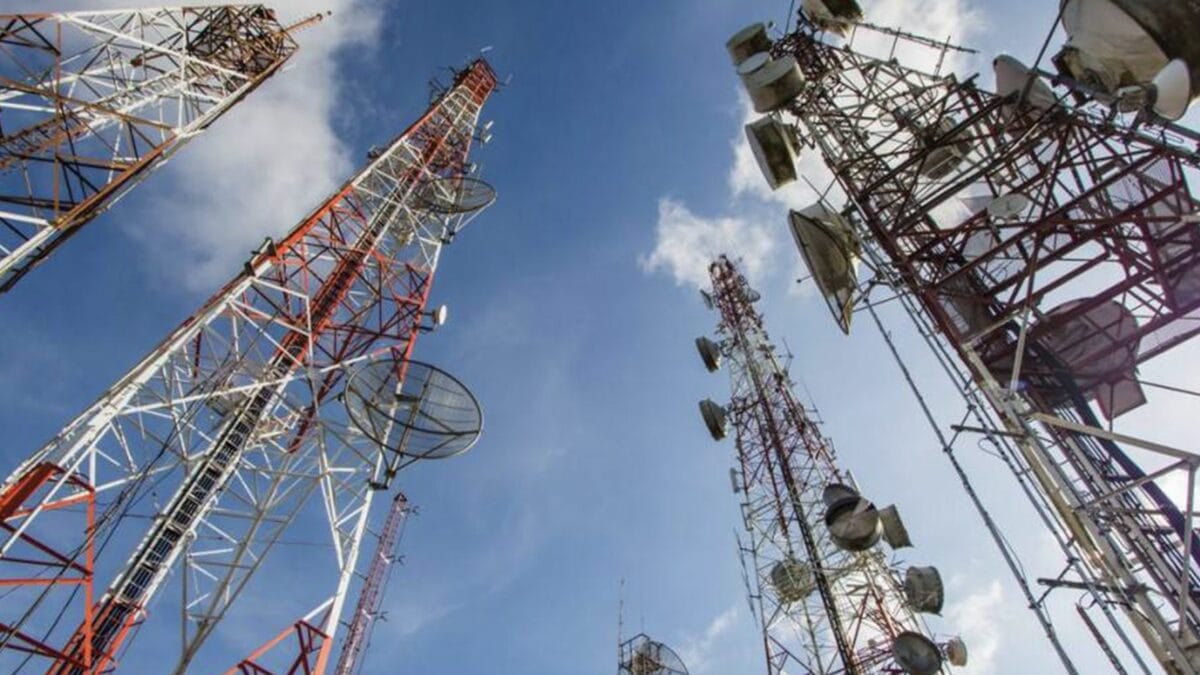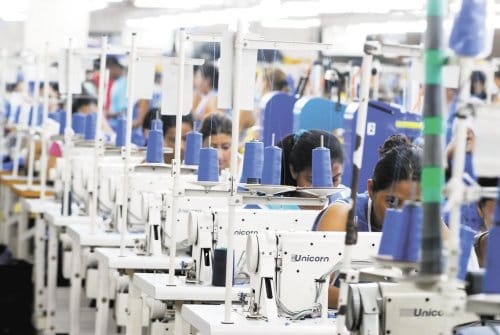The self-imposed diplomatic isolation of the Ortega Murillo regime from the democratic community, and the offensive developed against international organizations and agencies seeks firstly, to close the doors to any attempt to exert influence its totalitarian drift, and secondly, to avoid uncomfortable witnesses who would take notice to denounce its abuses.
The withdrawal from seven multilateral institutions of the United Nations system, from the Organization of American States (OAS), the Central American Court of Justice, which is part of the Central American Integration System (SICA) and the deadlock they have caused by forcing the Secretary General of SICA of Nicaraguan origin to resign, under their policy that if they do not control it, they will not allow it to function, are decisions that contribute to maintaining the totalitarian shield in the face of diplomatic pressure.
The regime does not want a repetition of the attempts at dialogue and negotiation, such as those of May 2018 and February 2019, with the Civic Alliance under the mediation, first of the Episcopal Conference of Nicaragua (CEN), and later, of the United States, the OAS and the Vatican, when it signed agreements that it never complied with. Nor did it resume the model of dialogue-consensus with the private sector, a mechanism it eliminated from its new Constitution.

They reject mediation
The exhaustion of diplomacy is reflected in the rejection of mediation attempts such as those made on different occasions by the OAS General Secretariat and by the Permanent Council made up of groups of countries with which the dictatorship refused to talk. Also, the decision not to participate in multilateral forums and the refusal to receive international missions such as those of the Office of the United Nations High Commissioner for Human Rights (OHCHR), the Group of Human Rights Experts on Nicaragua (GHREN), the Inter-American Commission on Human Rights (IACHR), the United Nations Commission against Torture (CAT), the International Labor Organization (ILO) and other UN commissions of specialists.
The barrier to diplomatic exercise also included the expulsion or impediment of entry of humanitarian agencies, such as the International Red Cross, the rupture of diplomatic relations with the Netherlands and the Vatican, and the declaration of persona non grata with which he constantly threatens diplomats accredited in Managua who dare to express any criticism.
Setting aside a conduct of good relations with democratic countries and aligning itself belligerently with China, Russia, Iran, North Korea, Venezuela and Cuba, has led the dictatorship to engage in hostile or destabilizing acts.
Among them, the exercise of hybrid warfare against the United States through the promotion of irregular migration by land using the Managua International Airport as a bridge, the development of cross-border violence against opponents, especially in Costa Rica, violating its sovereignty, and the disinformation and propaganda campaigns against democracies, which contribute to the destabilization structuressetup by Russia, China and Iran.

Do not abandon diplomacy altogether
The international community has already noted that the Ortega-Murillo family is not willing to resolve, by peaceful means, the internal crisis and the conflicts it has generated. This caused the OAS not to include the situation in Nicaragua in the agenda of the 55th General Assembly, despite the fact that previously approved resolutions continue to be in force, mandating to follow up on the crisis despite the country’s exit from the organization.
The disregard of judgments of the Inter-American Court of Human Rights (IACHR) and resolutions of competent multilateral organizations in this matter, confirm the futility of any goodwill approach.
The dictatorship feels safe and protected by its strategic alliances with extra-continental powers and is willing to get involved in the power games of those nations which, by having the Ortega-Murillo regime at their service, have expanded their influence and control in the continent. For that security, they turned their backs on ethical values and the norms of international law, illusively calculating that the practice of power with their allies against democracies will allow them to consolidate and even contribute to their defeat.
Having exhausted diplomacy, “realpolitik” can only lead those who feel threatened by the foreign policy of the Ortega Murillo family to coercive or exceptional measures. However, the Nicaraguan Democratic Concertation (CDN), considers that diplomacy should not be abandoned completely, but should be reconfigured together with other effective measures to protect Nicaraguans from a criminal dictatorship and safeguard peace in the region, since diplomacy without an appropriate level of pressure has already proven to be ineffective.
The real containment wall is against investment

In the wake of the Trump administration’s decision to end the Drug Enforcement Administration (DEA) operations in Nicaragua in 2025, it became clear that, the supposed retaining wall that the Ortega-Murillo dictatorship propagandized as an international security policy achievement, in reality did not exist.
Since the dictatorship broke with the international democratic community and covered itself under the shadow of the world’s major dictatorships, it discarded relations where it does not obtain any benefit, or the cost of continuing is greater than the benefit. That is the case of all the spaces from which it withdrew or initiated the processes to do so.
At the same time that it distanced itself from democratic spaces, it promoted drug trafficking and irregular migration, as part of the activities that it now prioritizes together with other dictatorships and criminal groups.
But he has not only distanced himself from democratic spaces and promoted illegal activities. In order to have total control of society, in parallel he dismantles those in the private business, through changes in the legal framework in which companies that are not his or his close ones operate.
Since 2018 they have been developing a systematic process of destruction in the economic sector, which is progressively increasing. It began with the land takeovers in 2018 and continued in 2019 with a tax reform that impacted negatively, primarily among small and medium enterprises. Many of them closed and those that survived pay extortion taxes.

Companies cannot defend themselves
Companies that have survived have not had a legal framework to defend themselves against decisions imposed by tax, customs, municipal or any other authorities.
As of 2023, all business associations were closed and their assets were confiscated. This generated a complaint against the dictator in the International Labor Organization (ILO), for non-compliance with four conventions related to freedom of association, the right to organize and collective bargaining, discrimination in employment, and tripartite consultation. This process culminated in the creation and formation of a Commission of Inquiry, for the second time in the history of the country and under the same ruler.
Furthermore, the objective of the constitutional reform in force since February and the recently approved economic-financial laws is to concentrate the power of the State over the economy, through the elimination of State commitments promoted by the private sector and the construction of a repressive (and no longer de facto) legal framework, which keeps companies and businessmen completely subordinated, defenseless and in the hands of the State.
The new foreign investment law and its regulations control national and foreign companies. In the case of new investments, they will have to be approved by the son of the co-dictators, and the existing foreign ones, in order to continue in the country, are obliged to sign an investment contract with the State, regardless of whether they like its content or not.
No independent businessman, nor national or foreign company has security in Nicaragua. Their existence, certainty or profitability is not determined by their efficiency, competence or productivity, but by what the Ortega-Murillo family decides, who can change their mind at any time they wish.

Companies are defenseless
An example of the extent to which investors are defenseless was evidenced a few days ago, with the approval of a loan that the Nicaraguan Electricity Transmission Company (Enatrel) will receive from a Chinese company to enter the mobile telephony business. A business in which the dictatorship will be an unfair competitor for the companies Tigo and Claro. In addition, it authorized the use of the infrastructure of these companies and of the private tower companies, so that Enatrel can place its antennas without having to invest, as private companies must do.
This process against the private sector has caused that in the last few years there has been practically no new private investment, neither national nor foreign. What is observed is the reinvestment of profits of foreign companies that are in the country, partly because they are not authorized to distribute them.
To this must be added that recently, the dictatorship, which is characterized by manipulating its statistics in full view and patience of the International Monetary Fund (IMF), reduced the amounts of foreign investment it had announced for 2021, 2022 and 2023. Additionally, this year it has not presented figures of the foreign investment that has arrived in the country.
For all of the above reasons, in the Nicaraguan Democratic Concertation (CDN), we consider that the real containment wall that the dictatorship built in recent years is against investment and not against drug trafficking, and that the big loser is the Nicaraguan people who, despite what the IMF and the Risk Rating Agencies say in their reports, who complacently keep quiet about these realities, see the hopes of a future with economic growth and employment generation being lost.
